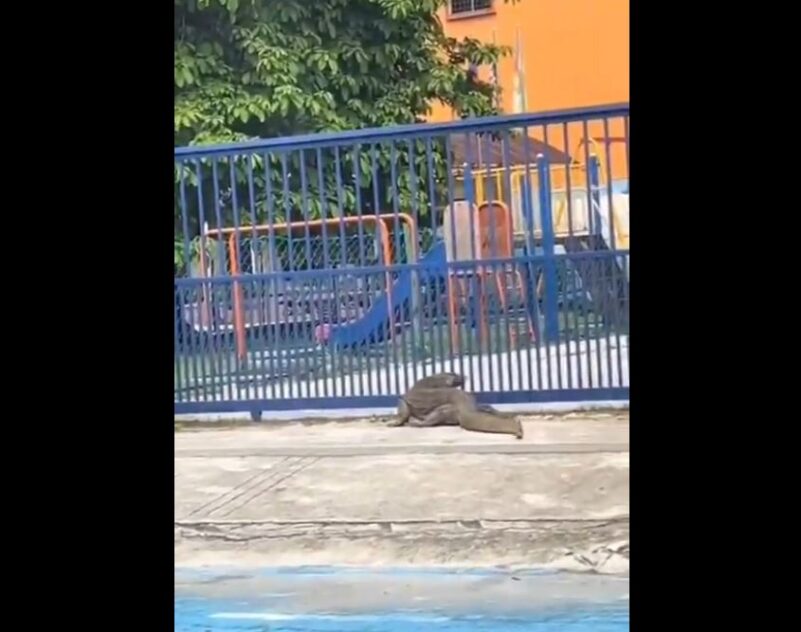FEDERATION of Malaysian Freight Forwarders (FMFF) welcome the Press Statement by SAM which sought to clarify inappropriate representations and misleading statements by FMFF and MNSC.
It was good for SAM to come up with the clarifications so that we can now understand the “slip” between SAM and us.
Container deposit:
Both FMFF and MNSC said that the matter of container deposit has been decided and resolved by the then Minister of Transport but that there were still shipping lines who insist on changing the rules, such as demanding additional Letter of Indemnity from Forwarder.
Everyone is free to choose to hear what he wants to hear and SAM did not hear about the Letter of Indemnity that both FMFF and MNSC brought up but only heard container deposit. And on the container deposit, they only heard that it is “merely a recommendation”.
How then did Mr Ooi and SAM understood it only as “merely a recommendation” when we consider the following:
1. At the NLTF meeting chaired by Minister of Transport, Mr Ooi replied to a question from then Minister of Transport on the three instruments to be adopted to do away with container deposit. Mr Ooi replied, almost verbatim, “Minister has already decided. We will just have to follow”.
2. At the Chinese New Year function hosted by Port Klang Authority on 13/02/2020, attended by Mr Ooi, the then Minister said the following in his speech to announce the resolution of the container deposit matter.
NLTF Pada December 2019 telah membincangkan isu berkaitan dengan deposit container. Amalan ini dilihat telah membebankan ejen penghantaran dan pengimport dan sekaligus menjadikan salah satu punca kenaikan cost of doing business di Pelabuhan Klang.
Hasil dari perbincangan bersama semua stakeholders, satu penyelesaian telah dicapai dan cadangan-cadangan bagi menyelesaikan masalah tersebut telah pun diterima pakai oleh para pemain industri. So, ini merupakan salah satu isu pengambilan deposit untuk container yang memang kita faham menjadi satu beban kepada shippers, ejen2 dan penghantaran dan pengimport yang merupakan satu beban yang sangat tinggi yang telah menjadi isu pada tahun lepas.
Tetapi oleh kerana kita mengambil langkah proaktif untuk menyelesaikan isu ini untuk bawa bersama pihak-pihak yang terlibat untuk duduk berbincang. Maka satu jalan penyelesaian yang boleh diterima oleh semua pihak telah pun kita capai dan saya nak mengucapkan syabas kepada Lembaga Pelabuhan Klang kerana berjaya membawa satu penyelesaian kepada isu ini.
Saya harap dengan tiga options atau pun 3 cara penyelesaian yang telah pun dibentangkan dan dicadangkan. Maka isu yang timbul telah pun diselesaikan dan kita akan terus memantau dari masa ke semasa dan kalau berlaku apa-apa dispute maka Lembaga Pelabuhan Klang akan menjadi orang tengah untuk cuba menyelesaikan isu dan masalah yang timbul.
Saya harap bahawa dengan langkah proaktif ini dapat kita selesaikan masalah yang timbul.
3. On 21/02/2020 Port Klang issued a circular titled “Implementation of alternative solutions to the practice of container deposit collection in Port Klang”.
The PKA circular said that “The NLTF Meeting chaired by Hon. Minister of Transport whose members include associations representing shipping companies, importers, Exporters and Forwarding agents approved three proposed schemes in lieu of container deposits.
The NLTF Meeting decided and endorsed as follows:
Shipping lines/Agents/NVOCCs/Box Operators shall subscribe to either Non-Cheque Deposit (NCD) Scheme managed by Selangor Freight Forwarders and Logistics Association (SFFLA) or Container Ledger Account (CLA) by D&D Control (M) Sdn Bhd.
The Circular went on to spell out the participation of shipping lines and forwarding agents in the other proposed options. It was also noted that shipping lines/agents/NVOCCS may collect container deposit from non-subscribers (Forwarding agents) of NCD and CLA.
Circular also stated that “shipping Lines/Agents/NVOCCs and Forwarding agents subscribing to NCD scheme, CLA scheme or ICargo+ shall comply with the Terms of Reference, Version 1 accordingly.
The circular also stated that “the above will be effective from 1st March 2020”.
So how in the world could SAM deduce that it was ‘merely a recommendation”? We leave it to Ministry of Transport and Port Klang Authority to clarify whether the container deposit resolution was “merely a recommendation” or otherwise. SAM added that it was also not a gazetted law but merely a recommendation.
FMFF do not know the full extent of the powers of the Minister of Transport but we believe that he has the power to make that decision and that decision need not be backed by gazetted law.
Waiver of demurrage and detention charges:
Both FMFF and MNSC Press Statements did not bring up the subject of waiver of demurrage and detention charges in their Press Statements. Therefore, there is no misrepresentation from FMFF and MNSC in our Press Statements on this issue. The matter has been brought up in a meeting at MOT and attended by SAM including FMM and FMFF on 25/06/2020. There was discussion and explanation from SAM why they could not consider waiver of demurrage charges.
However, since SAM brought this up in the Press Statement, we wish to clarify that the request to SAM to consider waiver of demurrage and detention was that many businesses were either not allowed to operate or could not open quickly for business owing to MCO and thus, unable to clear the cargo from the Ports. As Port Authorities and Terminals have recognized this difficult situation facing the businesses, they agreed to grant waiver of storage and removal charges, Similarly, the request was made to Shipping lines to help the affected businesses. However, SAM’s Press Statement deemed the requests as “unnecessary and unlawful pressure”.
Whilst the request was for waiver, a reasonable discount by shipping lines to the SMEs importers would have been a great help. SAM also reported that its members have also given discounts on demurrage and detention charges to consignees who appealed to them. That could be true. We have checked and found that big customers of shipping lines got between 10-50% discount on demurrage charges from some shipping lines but almost all SME importers received no discount whatsoever. Big customers can get these from shipping lines but 80% of imports and exports are from SMEs, who get no preferential treatment.
Bunker Low Sulphur Surcharge
Again, this matter was not brought up in the Press Statements by FMFF and MNSC but raised by FMM at the MOT meeting on 25/06/2020. SAM had pointed out that it was Freight Forwarders who raised the LSS charge and that MNSC should direct the matter to FMFF whose members raised the issue.
FMFF through SFFLA had taken up the issue with Port Klang Authority and on 28/01/2020, PKA issued a circular “Practice of LSS surcharge collection as part of import LCL containers landside charge” to Freight Forwarders. The circular stated that “With regard to the above, please be informed that Freight Forwarders may collect LSS as part of the freight charges if it is paid locally and should not be charged as a landside charge for import LCL containers since it is not part of the local handling cost” The circular has been sent to FMM/MNSC and they have understood the issue better. This is an example of how FMFF can regulate its members who are Freight Forwarders. On the contrary, we have evidence of shipping lines charging LSS when no freight charge is involved. Can SAM do the same to their members?
Claims by MNSC that shipping lines are profiteering from shippers by imposing exorbitant charges during this challenging time
The woeful attempt by SAM to denounce this claim by MNSC and linking profiteering claims to overall losses suffered by shipping lines show their lack of understanding what profiteering means. Under the Anti-profiteering Act, it is not whether the company makes a profit. Profiteering is on a single item or SKU that is manufactured and sold and whether the profit margin for that particular product falls under profiteering. It relates to each item and in SAM’s case to each service that they charge importers/exporters.
We take note of SAM’s explanation about new pricing models because they could not handle the volatility of freight rates and how the new pricing models sought to secure revenues through landside charges to offset losses from competitive freight. Is that justified? Were importers and exporters consulted and agreed to your new pricing models? Who decides? Obviously shipping lines who just have to issue a Notice that these are new charges or increases in charges. Pay up or else we withhold your Delivery order. Do importers have recourse? To whom should they go for help?
It seems like SAM and its members want the cake and eat it too.
They compete outrageously among themselves to secure freight bookings for the year from big shippers and buyers and then offset what they may have given out in freight rebates with unjustified landside charges to improve their margins. Malaysia’s importers are mostly SMEs with little or no bargaining power. All the landside charges are thrust down their throats and they have to pay up if they want to have their Delivery Order released. Shipping lines simply make their own rules and expect everyone to abide by them.
We have compiled a list of all the landside charges and it would be a thrill to hear from SAM the definition of each charge, the service they render for the charge and the justification for the rate and its perennial increases. It may be wise for SAM to start preparing to answer these easy questions.
As the saying goes, if the fire is too hot, get out of the fire. Why should shipping lines continue to operate if they suffer losses? They should exit the business and let the stronger and more competitive shipping lines take over the business.
Call by FMFF and MNSC to regulate shipping companies
Whilst both FMFF and MNSC have referred to the need to regulate shipping lines, the emphasis is actually on the unfair practices related to landside charges. If SAM reads carefully FMFF’s Press Statement our call for regulation was mainly to control charges. In the proposals we quoted, whether through the Port Authority’s Act or through licensing by Customs it was all to control charges.
Even MNSC while calling for establishment of Marcom, emphasized “to govern the unfair advantages and practices”. Their call to MDTCA was “to control the unilateral and arbitrary imposition of charges on shippers”
And lastly, in reply to SAM’s remark “it is unfair for MNSC and FMFF to continuously call for regulating shipping companies when there is no similar call for regulating their own businesses, we have done so and will do so to regulate our members and their business whenever necessary. As mentioned earlier, we brought up the regulating of LSS charge by Freight Forwarders (many are our members). Since 2005, we have regulated the console and warehousing charges through Port Klang Authority to fix the charges and rates chargeable by console and warehouse operators.
We have done it and will do what is necessary. Can SAM regulate its members? Will SAM?
And on the last comment by SAM that they are open to feedback and constantly working in improving various initiatives in the best interest of everyone in the business community. Please tell us SAM what are those.
FMFF/SFFLA have met with SAM and their standard reply is “we can inform and advise our members but we cannot tell them what to do”.
We rest our case.
Alvin Chua is president of FMFF









